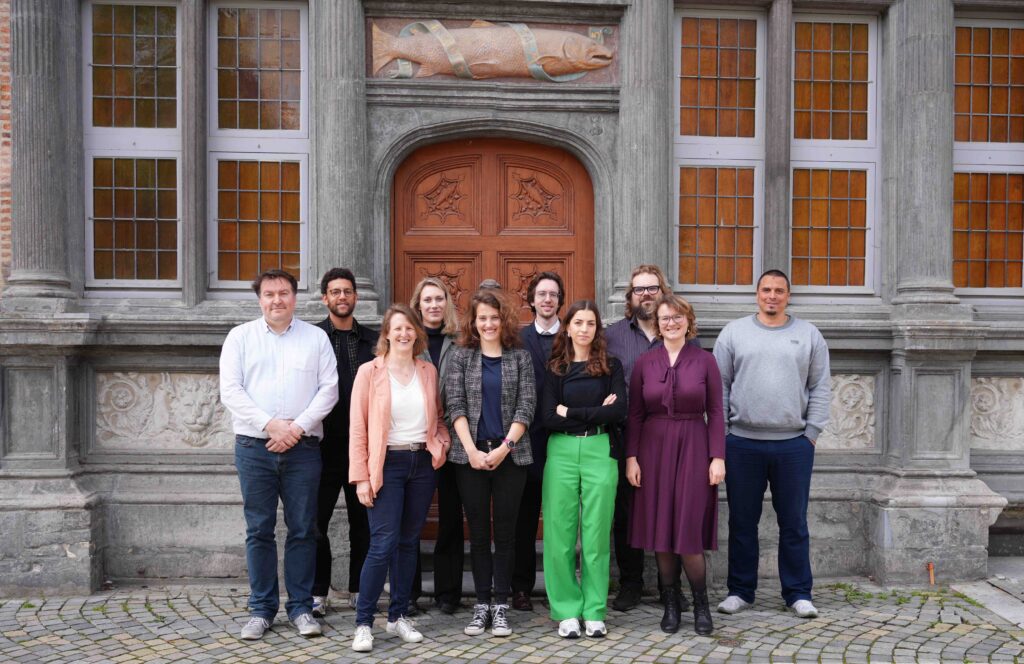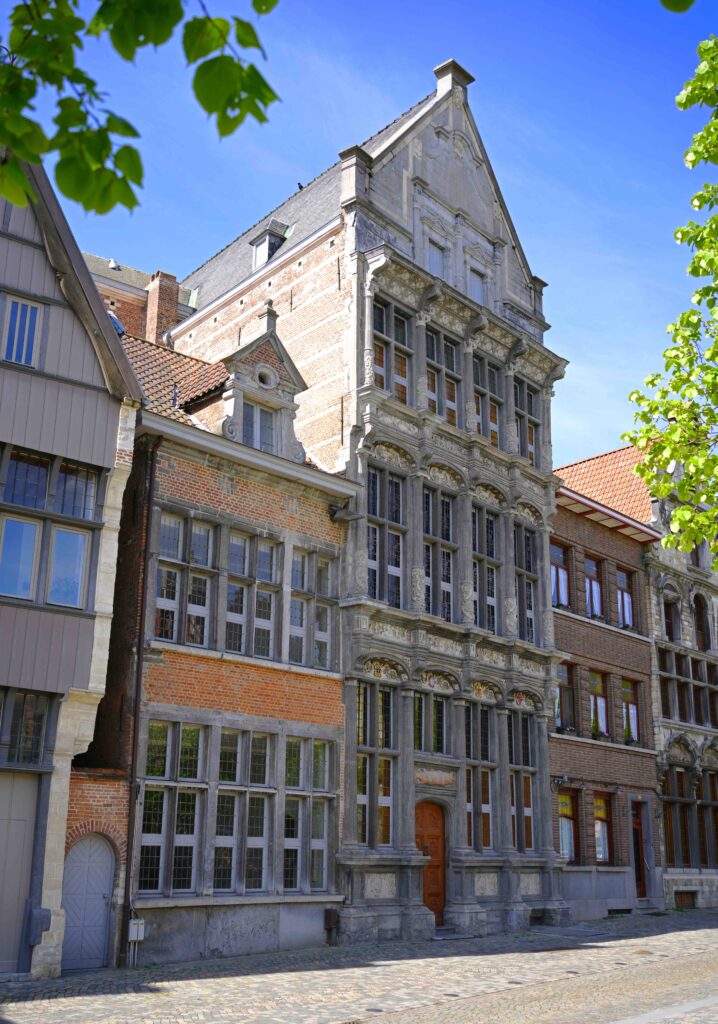In this interview Landry Mawungu and Katrijn Goossens from the Hannah Arendt Institute (HAI) share the organisation's motivations as active participants in the Speak Up project. They shed light on their organisation's role in bridging the gap between academic research and practical application. Through their involvement in Speak Up, they're committed to moving forward with the Collective Impact Model: a structured way to tackle complex social issues. By actively taking part in Speak Up, they want to explore the Collective Impact Model more deeply and see how local municipalities could apply it to foster participation and collaboration with their citizens and diverse stakeholders, which they believe will help make real and positive changes in society.
Can you tell us something about yourselves and your organisation?
We are part of the Hannah Arendt Institute, a collaboration between Free University of Brussels (VUB), University of Antwerp, Catholic University Leuven (KULeuven), University of Gent, University of Hasselt, and the city of Mechelen.
The Hannah Arendt Institute focuses on translating academic research into practical solutions for societal issues. We work with diverse research groups to undertake various projects related to urbanity, diversity, and citizenship. Our aim is to bridge the gap between academic research and the world of practice and to make scientifical insights useful for practitioners. We therefore, for instance, collaborate with local governments and academic experts to address specific challenges, such as combating desinformation, hate speech and polarisation and promoting dialogue in various community settings.
Our team consists of six members, recently expanded from four. Landry has been with the organisation for 3 years. His background is in sociology and international politics. He is passionate about politics and societal challenges. Katrijn recently graduated from VUB as a political scientist, specializing in democracy and leadership. She works as a researcher at the Hannah Arendt Institute, focusing on the Collective Impact Model, which aims to address complex societal challenges by bringing together diverse stakeholders and communities and aligning their efforts towards a common goal.

What inspired your organisation to join the Speak Up project and what do you want to achieve through your participation in this project?
We were inspired by the opportunity Speak Up offers to learn from local governments and collaborate with partners in fostering citizen engagement and ways in which governments and citizens can better work together. We aim to contribute our expertise in translating academic research on the Collective Impact Model into practical tools and materials to promote new governance models for better cross-sectoral collaboration and citizen engagement. Through our participation, we hope to inspire other cities and governments to adopt similar approaches and integrate participation into their organisational structures effectively.
What are your expectations of participating in the Speak Up project?
We expect to gain valuable insights into how local governments incorporate citizen engagement within their global governance and how effective these engagement strategies are in practice. Additionally, we hope to share our knowledge and experiences with partners and contribute to the development of effective governance frameworks for better participation, through the lens of the Collective Impact Model. Additionally, we view our participation as an opportunity to share more general academical knowledge about ‘democratic renewal’, ‘citizen engagement’ and ‘citizen assemblies’ with partners and ensure it is used to inspire other cities and governments in their own participation practices.
“We want to use the Collective Impact Model to involve all stakeholders and to embed participation within the culture of a local government”.
What is a previous citizen engagement initiative that your organisation is proud of?
We take pride in our "facts to act" event, a three-day major event with panel discussions, workshops, keynotes which brings together academical experts and stakeholders from various societal fields to explore how research can inform action relating major social challenges such as extremism, democratic resilience, social cohesion in superdiverse societies, inequality and inclusion, etc.. The event aims to consider how research can impact practice and society, bringing together a wide audience, including professionals, to find insights for action. This event is an example of our commitment to bridging the gap between academia and the public and creating opportunities for dialogue and collaboration. We have also been involved in projects aimed at tackling issues such as disinformation and polarization on social media and promoting dialogue in various community settings.
Could you share any upcoming initiatives or events related to Speak Up that your organisation is currently working on?
Currently, we are focused on compiling literature on the Collective Impact Model. We plan to conduct case studies on local governments already involved in this approach to gain deeper insights into its effectiveness and potential for application in different contexts. Next to that, we are preparing together with the city of Mechelen the first end-of-the-year conference of Speak Up that will take place in Mechelen in December 2024. It will be a nice inspirational and learning moment about ‘citizen engagement’ for all Speak Up partners, but also for other local municipalities and stakeholders that will join our event.

